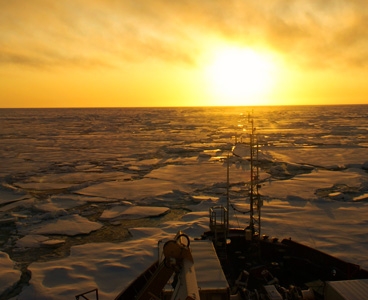On thin ice
On thin ice
Wed August 10th, 2011
Emily Finn, MIT News Office
 According to new research, the most recent global climate report fails to capture trends in Arctic sea-ice thinning and drift, and in some cases substantially underestimates these trends. The Intergovernmental Panel on Climate Change (IPCC) Fourth Assessment Report, released in 2007, forecasts an ice-free Arctic summer by the year 2100, among other predictions. But Pierre Rampal, a postdoc in the Department of Earth, Atmosphere, and Planetary Sciences (EAPS), and colleagues say it may happen several decades earlier.
According to new research, the most recent global climate report fails to capture trends in Arctic sea-ice thinning and drift, and in some cases substantially underestimates these trends. The Intergovernmental Panel on Climate Change (IPCC) Fourth Assessment Report, released in 2007, forecasts an ice-free Arctic summer by the year 2100, among other predictions. But Pierre Rampal, a postdoc in the Department of Earth, Atmosphere, and Planetary Sciences (EAPS), and colleagues say it may happen several decades earlier.
Read more in this MIT News article.